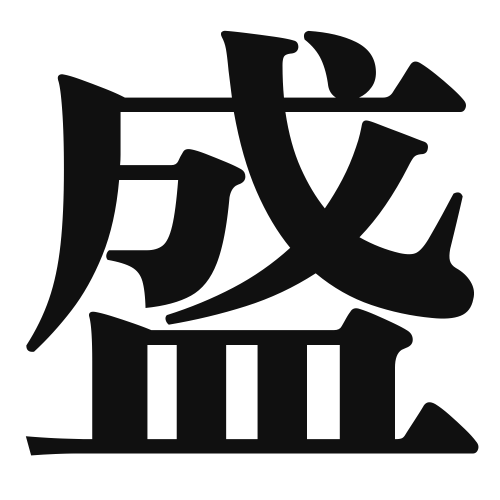1. Overview of Meaning
The kanji 盛 (pronounced “mori” or “sō”) generally means “prosperous,” “flourishing,” or “abundant.” It conveys a sense of growth, richness, and vitality.
2. Formation and Radical
Formation of the Kanji: The kanji 盛 is classified as a phonetic-ideographic character (形声文字), which combines both meaning and sound. The left part, 盛, represents the idea of “to pile up” or “to serve,” while the right part indicates its pronunciation.
Radical: The radical for 盛 is 土 (earth), which often relates to concepts of land, growth, and stability.
3. Examples of Usage
Common Words and Phrases: Some frequently used words that include 盛 are:
- 盛り上がる (moriagaru) – to rise, to swell, to become lively
- 盛況 (seikyō) – prosperity, success
- 盛り (mori) – serving (of food)
Example Sentences in Daily Conversation:
- このイベントはとても盛り上がっています。
This event is very lively. - 彼のビジネスは最近盛況です。
His business has been thriving lately.
4. Synonyms and Antonyms
Similar Kanji: A kanji with a similar meaning is 豊 (yutaka), which means “rich” or “abundant,” but it emphasizes wealth and resources more than the growth aspect of 盛.
Opposite Kanji: An antonym of 盛 is 衰 (sui), which means “decline” or “deterioration,” indicating a decrease in vitality or prosperity.
5. Cultural and Historical Background
Relation to Japanese Culture: The concept of 盛 is deeply embedded in Japanese culture, often associated with festivals and celebrations where abundance and prosperity are highlighted.
Proverbs and Idioms: One common saying is 盛者必衰 (shōsha hissui), which translates to “the prosperous must decline,” reflecting the transient nature of success and prosperity in life.
